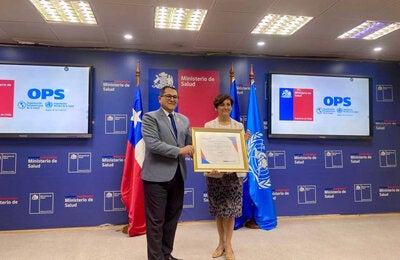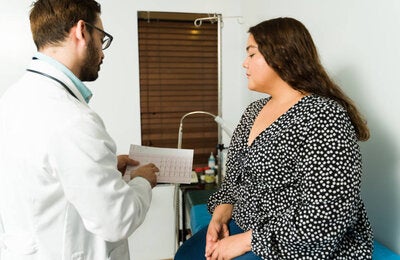
Washington DC, January 29, 2021 (PAHO) - Representatives of PAHO and countries of the region participated in the General Session of the National Pharmaceutical Services Groups, held on 10 December 2020, virtually, to discuss the experiences and progress of the countries in the development of national plans for pharmaceutical services based on primary health care. Experts from Argentina, Brazil, Chile, Costa Rica, Cuba, Ecuador, Guatemala, Honduras, Mexico, Panama, Peru, United States, and Uruguay participated.
In recent months, 14 countries have been consolidating their national groups to promote pharmaceutical services, with the collaboration from experts from the ministries of health, academia, and professional associations. Throughout the first half of 2021, the groups will meet and finalize their national plans that include the following elements:
- Mapping of actors.
- Dissemination of key position documents.
- Agreement on the rating system/recognition of pharmacy levels, including options for piloting the rating system.
- Support in the measurement of indicators of rational use of medicines in pharmaceutical services.
- Support regulatory initiatives to restrict the sale without prescription of antimicrobials and awareness campaigns on the use of antibiotics.
- Strengthening of services in the context of COVID-19.
- Participation in regional training.
- Coordination roles and members.
During the event, Loreto Gonzalez, Public Policy Division, Chile, and Francisco Martínez, Ministry of Health of Chile, presented on the experience of pharmaceutical services in the country. André Ulysses, PAHO/WHO, presented the experience of the development and operation of the Brazilian national group.
Among the conclusions of the session, it was agreed that the national groups will provide support to the National Plans to Contain Antimicrobial Resistance (particularly in the components of consumption, rational use, enforcement procedures of antimicrobials’ sales, and campaigns/communication plans) and will support the initiatives on rational use, including the measurement of medicine use indicators in health services.
This line of work is part of the project "Working together to fight antimicrobial resistance", which is developed with the support of the European Union, in conjunction with the Food and Agriculture Organization of the United Nations (FAO) and the World Organization for Animal Health (OIE).



